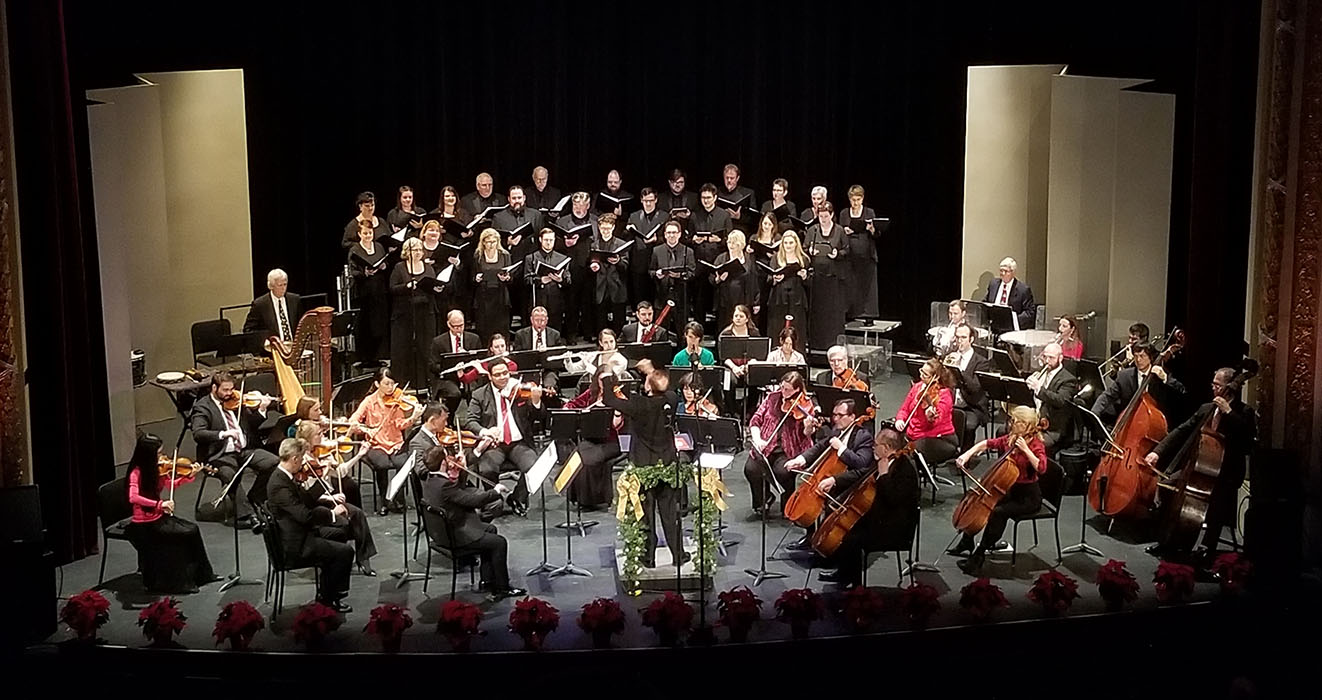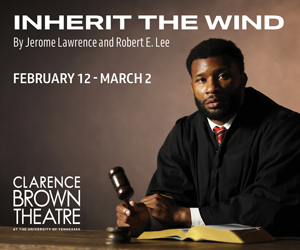In 2015, the Knoxville Symphony Orchestra took a chance and moved its November Chamber Classics concert to the weekend following Thanksgiving and titled it “Classical Christmas.” That incredibly popular concert took a different direction from the KSO’s Holiday Concerts—and a departure from the excessively familiar— avoiding the obvious “favorites” and drawing from the vast repertoire of winter-season inspired music. Three years later, the concept has now become something of a tradition—yesterday’s “Classical Christmas” by the Knoxville Symphony Chamber Orchestra played to a virtually sold-out Bijou Theatre.
Just as in that first “Classical Christmas,” resident conductor James Fellenbaum returned to the podium this year with the orchestra joined once again by the Knoxville Chamber Chorale (Director John Orr). After opening with Robert Wendel’s chuckle-inducing mixture of Mozart and “Joy To the World,” Overture to a Merry Christmas, the orchestra took on some Leroy Anderson arrangements of carols, the delightful 1917 Gesu Bambino by Pietro Yon, and finished the first half with Tchaikovsky (Christmas Waltz from The Seasons), Mendelssohn, and Handel’s “Hallelujah” from the oratorio Messiah. Although “Hallelujah” is in the Easter, not Christmas, section of Handel’s oratorio, it has nonetheless become a Christmastime icon in concerts. However, as audiences dutifully adhere to a questionable tradition and stumble to their feet at the playing of the first few bars, one has to wonder if damage has not been done to one of the great choruses in music history by assuming no seasonal concert is complete without it.
I’ll admit to being hard on contemporary English composer John Rutter from time to time for his own type of seasonal ubiquity, but his Three Kings of Orient featuring the orchestra and the Chamber Chorale turned out to be one of the big highlights of the afternoon. While his more familiar Star Carol followed, Three Kings of Orient was a sublime vehicle for the chorale, owing in large part to the group’s warmth and exquisite balance between treble and bass voices. The work was also a feast for the KSO woodwind players in orchestration that is simultaneously exotic, harmonically warm, and melodically tuneful.
The Chorale did two fine pieces by contemporary American composers, Matthew Culloton (“Infant Holy, Infant Lowly”) and Connor Koppin (“There is No Rose”), great material for this accomplished choral ensemble.
Fellenbaum, orchestra, and chorus closed the afternoon with a rousing Farandole from L’Arlesienne Suite No. 2 by George Bizet, certainly an appropriate finale. I’m pretty certain, though, the audience was hungry for more “Classical Christmas.” I certainly was.






